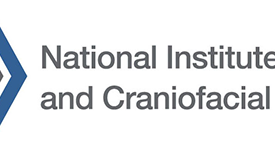-
Many students don’t know how to study. Here’s how parents can help.
Among the creative and maddening reasons kids come up with for not studying, one familiar one might be worth addressing: They don’t know how. Researchers and experienced educators have found that often students don’t have good study habits and skills, or that they rely on strategies that don’t work, frequently at the urging of teachers and parents. “It is somewhat shocking how many students just don’t know how to do it, which frustrates them and can turn them off to enjoying learning,” says Henry Roediger III, a professor of psychology and brain science at Washington University in St.
-
Eleven APS Fellows Elected to American Academy of Arts & Sciences
The American Academy of Arts & Sciences has announced the election of more than 200 new members, including 11 APS Fellows. The 2019 class includes APS Past Board Member and James McKeen Cattell Fellow Stephen J. Ceci (Cornell University), and APS Mentor Award Recipient Mark H. Johnson (University of Cambridge) was named an international honorary member. Ceci—who studies the development of intelligence and memory as well the accuracy of children’s courtroom testimony — is the author of approximately 450 articles, books, commentaries, reviews, and chapters.
-

Oral-Health Researchers to Be Recognized at APS Convention
The National Institute of Dental and Craniofacial Research has selected four scientists who are conducting research at the intersection of psychological science and oral health to receive the 2019 Building Bridges Travel Award, offered jointly with APS.
-
Inside the lab using mind-changing psychology experiments to solve the Israel-Palestine conflict
To read a man’s mind, first you have to outline his skull. Last November, I watched a psychologist use a digital pen to draw the circumference of a man’s head. The coordinates of his brain were quickly mapped, pinpointing the precise areas within his skull that process emotions. Behind him, a massive magnetic mind-reader—a neuroimaging device called a magnetoencephalography, or MEG—emerged from the wall, funneling into an oversized white helmet. It took two scientists to slowly maneuver the apparatus into position around his head. As the man lay still, staring blankly up at a screen, researchers crossed wires over his body and taped sensors to his temples.
-
What Can A Personality Test Tell Us About Who We Are?
In one of the most famous scenes from the Harry Potter series, a group of kids, new to the Hogwarts School of Witchcraft and Wizardry, line up before an old and crumpled wizard's hat. It is the sorting hat. The hat will tell them which house they'll belong to during their Hogwarts education. There is something deeply appealing about the sorting hat. It is wise. It seems to know people better than they know themselves. We humans love this kind of insight. And our drive to better understand ourselves and the people around us has led to the creation of a multi-billion dollar industry built around personality testing.
-
Precrastination: When the Early Bird Gets the Shaft
My baby teeth never fell out. Instead, I yanked them out, roots and all, as soon as they were loose. I could have saved myself considerable pain by letting nature take its course. But I’m a serial “precrastinator”: I flip pancakes before bubbles have formed on the surface; I get to the grocery store before it opens; I turn in work before it’s due. The urge to complete a task is so strong I forge ahead even when I know waiting would lead to a better outcome. Yes, this might sound a little nonsensical. But it’s not uncommon.

